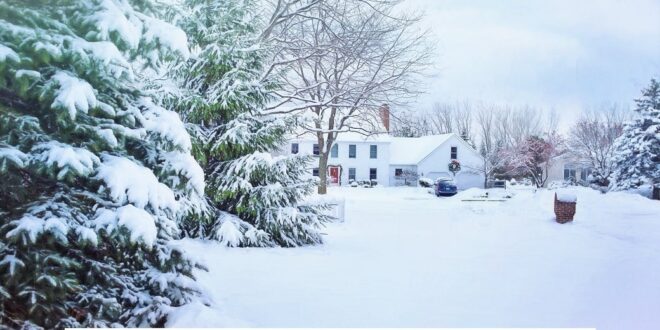Many homeowners may not think about winter-proofing their houses while enjoying the beautiful autumn color changes around them. However, now is the best time to protect and prepare your home from many winter-related disasters.
Besides, you don’t want to be looking for leaks all over your house when you’re busy with Christmas shopping and other pre-Christmas preparations.
Winter maintenance ensures that your house protects you and your family during the cold weather months. And at the same time, you know it is ready for the spring thaw. Here are things you can include on your to-do list this year on top of your pre-holiday checklist:
Seal All Leaks
Water leaks are dangerous, causing structural damage and mold growth before you even discover them. Go around your house and check any drafts that let your warm air out and cold air in. Look closely at your doors, windows, and basements.
Seal all gaps you see. Weatherstrip your windows, especially older ones. You can choose from various types, including bronze weatherstripping, self-stick plastic, and adhesive-backed EPDM rubber. Do the same with your doors with either foam-tape, felt, tubular rubber, vinyl, or silicone.
For severe problems, consider replacing your windows and doors before you end up paying more.
Check Your Gutters and Drainage
There’s increased rainfall in winter, so you want to be ready. Cleaning your gutter early on can avoid roof damage and expensive repairs or replacements. A clogged gutter can overflow, break, and fill with ice that will cause thawing damage and strain it.
You don’t need special tools for cleaning your gutters. Safely set your ladder against the side of your house on even ground. If possible, have someone hold onto it. Scoop out the dirt and debris with a small shovel and dump them into a bin bag or tarp. Flush out your gutters to finish.
Consider installing gutter guards, which you can buy in most home stores and hardware. These can help prevent debris from entering the gutter, interfering with the water flow away from the house and into the ground.
Add Extra Insulation to Attics, Crawl Spaces, and Basements
Excessive heat that escapes through the attic can cause snow or ice to melt on the roof. Water can then re-freeze, leading to more build-ups of snow and ice that can contribute to ice damming and even collapsed roofs. Make sure that your attic is 10 degrees warmer than the outside air.
In addition, insulating your basements and crawl spaces can help protect pipes from freezing. If you can, consider insulating unfinished rooms, like your garage, to avoid freezing pipes.
Check Pipes and Plumbing System
Look closely for leaks and cracks on your pipes and have them repaired right away. If there are exposed pipes, wrap them with heating tape. Protect your plumbing system against increased pressure caused by freezing pipes by installing an emergency pressure release valve. It prevents your pipes from bursting, causing flooding and water damage.
Ensure Your Smoke and Fire Alarms Are Working Properly
Home fires increase in winter than in any other season. Protect your family from fires by making sure your alarm system is working. Consider installing a carbon monoxide detector because a well-sealed house is prone to trapping this toxic gas.
Trim Trees and Remove Dead Branches
The winter season brings ice, snow, and wind that make trees weak or break branches, which fall into your house, car, or somebody walking by your property.
Inspect Your Heating and Air System
Generally, homeowners should change their filters before the cold weather arrives since they haven’t used them for many months. This improves the efficiency and lifespan of your HVAC unit, which you can use until spring. Consider calling professionals to take a look at your unit.
Call Licensed Contractors to Repair Structural Damage
Structural damage includes damage in your roof, load-bearing walls, windows, and door frames. Walls carry the majority of your house’s weight and are crucial to your home’s structure. Unless you are an expert in the construction, contact professionals to inspect and repair your home’s structural damage before the cold season arrives.
It is especially required if the damage in your home is severe since complete masonry repairs need good weather.
Check Your Electrical System
The last thing you want in dark and cold winter months is your electrical system to fail. Before it sets in, check your main service panel for sparking and breaker wires for any discoloration and bad insulation. Inspect the wall sockets and extension wires, and test your ground fault circuit interrupter (GFCI). Also, test the power flow using a multimeter through the electrical circuits.
If you’re not familiar with the electrical system, it’s always safe to hire reputable electricians to investigate further and repair whatever issue is present.
 Make Home Smart Let's Make Smart Home for Everyone!
Make Home Smart Let's Make Smart Home for Everyone!




